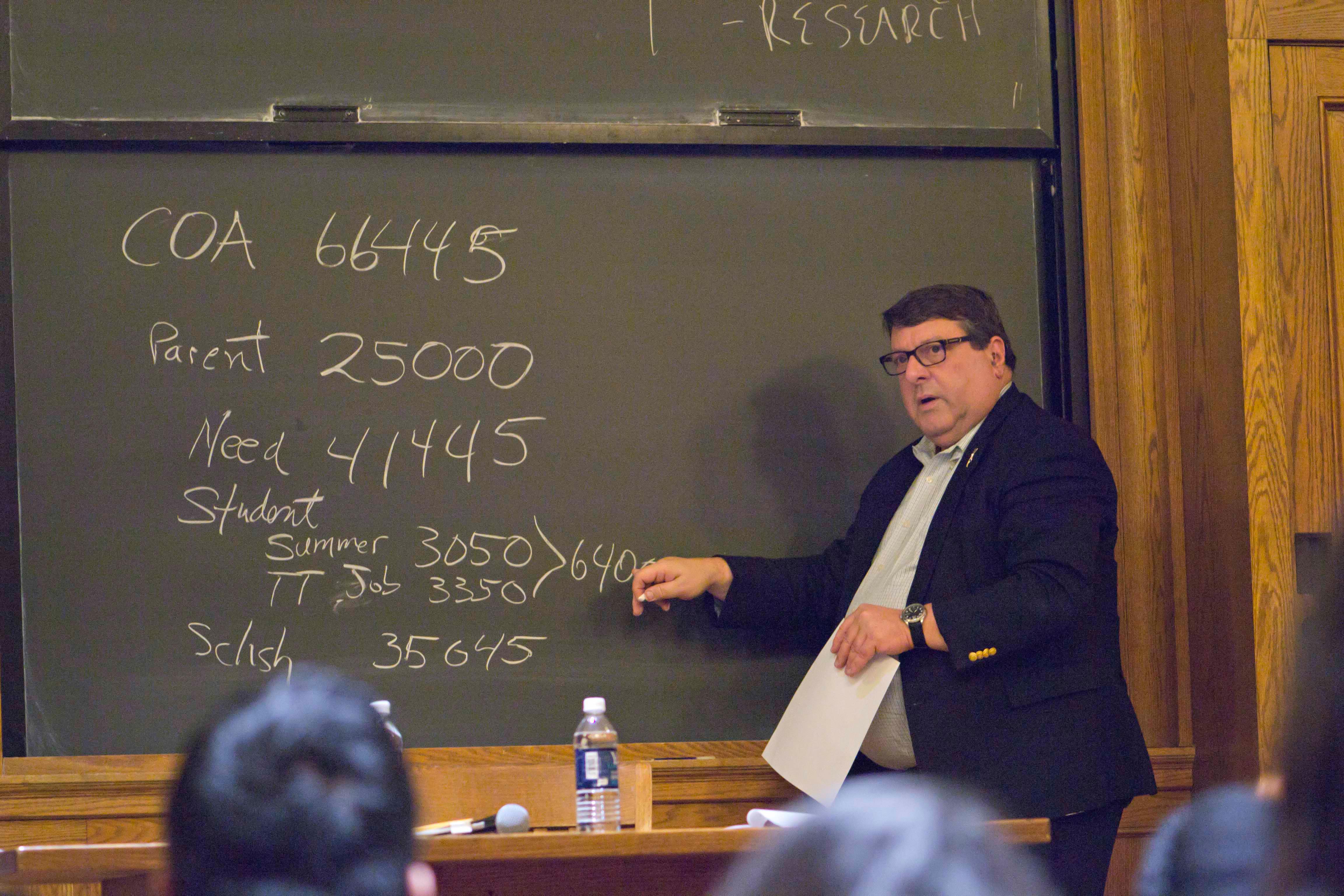
Despite recently announced cuts to the summer student income contribution, summer earnings that students on financial aid are expected to put toward their tuition, students claim that the changes do not adequately address the divergent Yale experiences of wealthy students as opposed to those with high financial need.
In January, a Yale College Council report on financial aid policy spoke to the division that exists on campus between students who are free to pursue extracurriculars and other interests with their free time, and those who must work on-campus jobs to help finance their Yale educations. The changes announced on Monday — which included a $1,350 reduction in the student summer income contribution for those with the highest need and a $450 decrease for all other students — were in direct response to the YCC report and other student activism, according to Dean of Undergraduate Admissions Jeremiah Quinlan and Director of Financial Aid Caesar Storlazzi, who ran the meeting. Students interviewed said the changes may be a start toward a lofty goal of the complete elimination of the student effort — the combination of the summer student income contribution and earnings from a term-time job. But they also said an inequality lingers that has been perpetuated by the student summer income contribution and the term-time student employment contribution, which has remained unchanged from its current value of $3,350 for upperclassmen. Despite the lower summer expectation, students said financial aid recipients will still be limited in their summer opportunities, often forgoing unpaid internships that may be more rewarding.
“With the proposed changes, students still have to decide between participating in an unpaid internship experience of their choice and finding a summer job,” Peter Huang ’18 said. “The reduction may allow students to work fewer hours during the summer, but students still have to work nevertheless to meet the cost of college.”
Huang added that being required to work over the summer will mean students may be restricted in the kinds of internships they can accept based on time constraints, or may not be able to take one at all.
Aviva Abusch ’18 said a $450 reduction was not enough to solve issues among students on financial aid. Rather, she said, it is the existence or nonexistence of the summer student contribution that makes the difference.
Student groups like A Leg Even, founded earlier this year, have sought to arrange for stipends for low-income students to pursue unpaid summer opportunities, arguing that the limitation contributes to a lack of access to resources for professional development for lower-income students. However, the changes announced on Monday have not been framed as a final solution; rather, Quinlan and Storlazzi emphasized repeatedly during Monday’s meeting that the reforms are still the beginning of an ongoing conversation between students and administrators. Still, Storlazzi stated at the meeting that Yale does not have the resources to scrap the student contribution entirely. In interviews with the News, both Yale College Dean Jonathan Holloway and University Provost Ben Polak did not address whether Yale could afford to fully eliminate the student summer income contribution.
“[The policy changes] really won’t make a difference for students seeking unpaid positions over the summer, especially if they are high need,” said Katie Trimm ’18, who said she is a high-need student. “Unless the office is able to find a different way for students to cover the student income contribution, students who came to college with little or no money will be unable to work an unpaid internship without taking out loans to cover their costs.”
JT Flowers ’17 — who co-authored the YCC report — said that in particular, students who do not fall into the “highest need” category as defined by Yale’s Office of Financial Aid — those with a calculated parent contribution of $0 — may still have trouble financing their summers because they do not receive the greater reduction afforded to that subset of the student body. This equates to around 300 of nearly 2,800 students on financial aid.
Rayan Alsemeiry ’19 said the reduction is helpful because it lightens the load for students who wish to take out loans to pay their summer student income contributions, but noted that even this burden should not exist. As it stands, Yale markets itself as a no-loans college in its financial aid and admissions materials to prospective students.
Most of the complaints surrounding the expected student contribution stem from the term-time requirement, which has not changed at all, Alsemeiry said.
Abusch said the announcement left many students on financial aid disappointed, as they were expecting solutions to problems that have been the subjects of widespread campus dialogue since last year.
“It’s not in any way going to help students who feel the burden of the student contribution get more out of their Yale experience,” Abusch said. “What was presented to us was an entirely inadequate solution. It was less than a baby step. It was maybe a Band-aid for a giant bleeding wound.”







